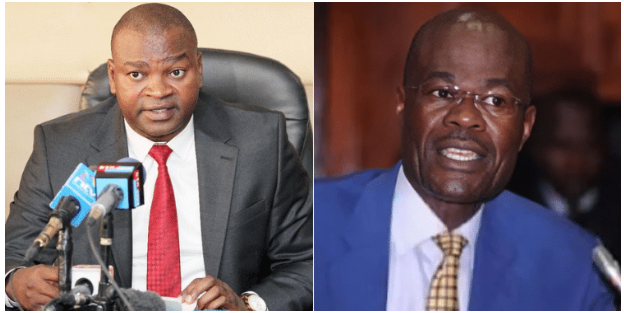
In a surprising turn of events, former Cabinet Secretary Rashid Echesa and businessman Jacob Jakakimba have both secured significant state appointments, further cementing their influence in Kenyan politics. Their new roles are seen as a reflection of the shifting dynamics within the political landscape and the growing importance of loyalty and connections in the country’s power structure.
Echesa, who previously served as the Cabinet Secretary for Sports, Culture, and Heritage, has been appointed to a key government position, although the exact role remains undisclosed. His appointment has sparked mixed reactions, with supporters praising his resilience and continued political relevance, while critics question the decision given his controversial tenure as a Cabinet Secretary, which was marred by allegations of corruption.
Jakakimba, a well-known businessman and political ally, has also been handed a significant state job. His appointment, seen by many as a reward for his support during recent elections, has raised eyebrows due to his lack of prior experience in government positions. However, Jakakimba’s close ties with key political figures have proven to be an asset in navigating the intricacies of Kenyan politics.
Both appointments are indicative of the growing trend of rewarding political loyalty, especially in the wake of Kenya’s 2022 general elections. With political patronage playing an increasingly important role in government appointments, the decisions to bring Echesa and Jakakimba into the fold highlight the ongoing reorganization of the government and the prioritization of loyalty over merit.
Critics argue that such appointments could undermine efforts to professionalize the public service and reduce corruption, as many of the roles filled by political loyalists lack the necessary technical expertise. Others, however, view the appointments as a pragmatic move to strengthen political alliances and maintain stability in the government.
Despite the controversy, both Echesa and Jakakimba have pledged to serve the public and bring positive change to their respective roles. Echesa has promised to focus on youth empowerment and sports development, areas that were central to his previous Cabinet position. Jakakimba, meanwhile, has expressed his intention to improve economic opportunities for small and medium-sized enterprises (SMEs) and create job opportunities for the youth.
As their appointments are scrutinized by both the public and political analysts, it remains to be seen how their presence in state jobs will influence the broader political and economic landscape in Kenya. Their new roles mark a significant chapter in their political careers and raise important questions about the future direction of government appointments in the country.

